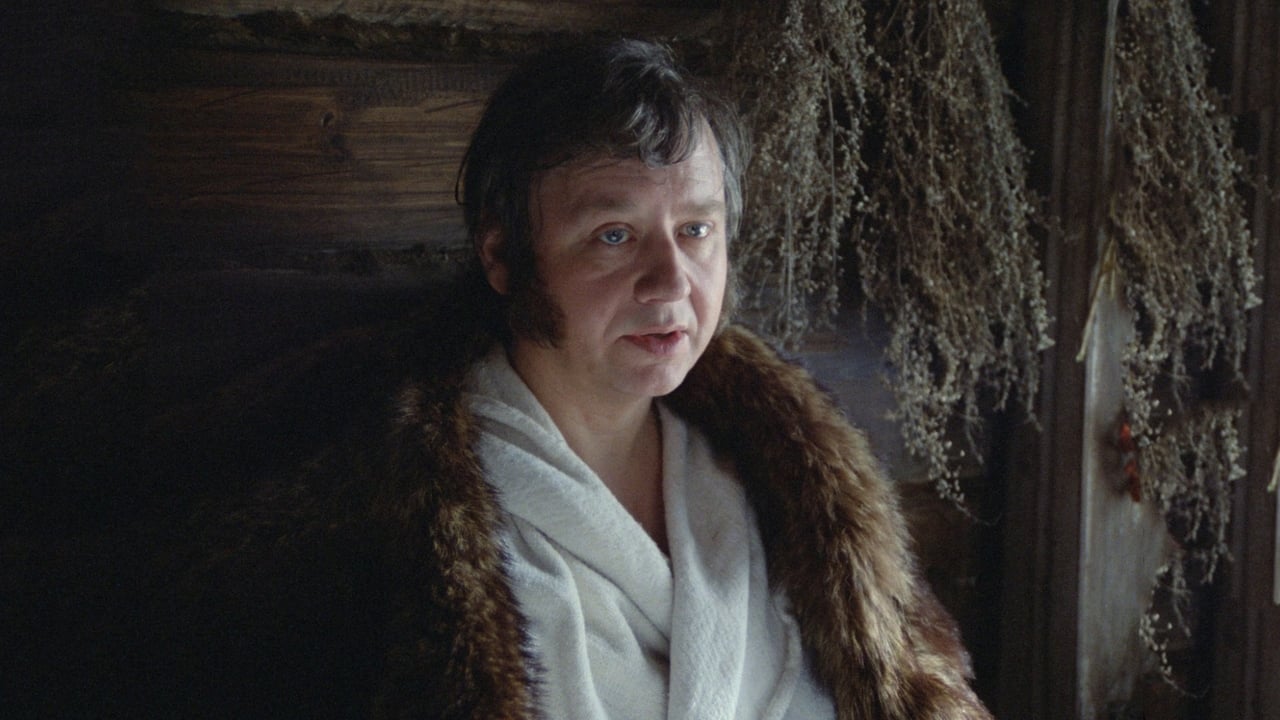

Exquisite work. Leaves you changed and moved. Very respectful to the book and to the era, fantastic cast.
... View MoreSt. Petersburg, mid 19th century: the indolent, middle-aged Oblomov lives in a flat with his older servant, Zakhar. He sleeps much of the day, dreaming of his childhood on his parents' estate. His boyhood companion, Stoltz, now an energetic and successful businessman, adds Oblomov to his circle whenever he's in the city, and Oblomov's life changes when Stoltz introduces him to Olga, lovely and cultured.In the Ivan Goncharov novel, Oblomov is considered an excellent example of the "Superfluous Man" concept of 1800s Russian literature. Alienated and let down by the world around them, the "superfluous man" character is often considered an outsider at odds with society. In both the novel and the film, Oblomov demonstrates this "superfluity" as an ineffective member of Russia's much criticized aristocracy. Goncharov referred to his character's passivity as "Oblomovism," and the term has since been associated with characters who possess Oblomov's apathy and membership in Russia's upper class.I have to wonder about how pre-1900s Russian literature was interpreted post-1917. Was the way the aristocracy perceived changed? It seems almost absurd to me to make such a film in 1980, when it no longer has the political impact. Unless, of course, it is even more subversive and subtle than it first appears.
... View Morenot a surprise. the novel by Goncharov is perfect choice for Mikhalkov style. Oleg Tabakov translate on screen the entire soft and fragile universe of his character. the atmosphere, the dialogs, the profound drama - pieces of a seductive film. and little more because, like in many same adaptations, the movie is a trip in the space between lines. Oblomov has new nuances. his struggle for happiness has new points who gives to the portrait from novel special significance. not a victim, not a symbol. but the good man who has a single challenge - himself. the portrait becomes seductive. and clear in new light. Tabakov explores the limits and the isles of illusion. and Mikhalkov has the courage and art and subtle science to transform the world of XIX century in shadow of a new Idiot. Oblomov becomes more realistic. and more easy to define it in a large measure. a film from a special art of seduction.
... View MoreI tried to read Goncharov's novel while in high school after having polished off books by Dostoyevsky, Tolstoy, and others, but Oblomov defeated me in the first few pages. It was just real tough to get into a story about a middle-aged, semi-retired government clerk who doesn't want to get out of bed all day. Now that I am middle-aged myself, I can relate to Oblomov's condition more. I still thought the first part of the movie (of which he actually does spend a good portion in bed) was slow, but after seeing the rest, I regretted never having finished the book. This is one of the greatest movies ever in any language describing what it is like to be depressed - afraid to make decisions and without energy to carry them out, and then what the consequences are of failing to act. With the help of his best friend, Stoltz, and his slogan "now or never" Oblomov manages to get out of his St. Petersburg apartment and begins to rebuild his life. Stoltz even introduces him to a young lady friend, Olga, and (while claiming she is "just a child") tells Oblomov that she and her aunt care take care of him (by keeping Oblomov from crawling back into bed) while he (Stoltz) is off to England. By Part II of the movie, Oblomov has shed 30 pounds and apparently 20 years, and has moved to the country, next door to Olga and her aunt. At this point the movie deals with romantic love from the point of view of a very shy, somewhat older man for a vibrant young woman, and it is this bitter-sweet part that is most moving and interesting. This is one of Nikita Mikhalkov's Soviet-period films, and while it is set is Czarist days and almost fondly lingers on the details of the opulent houses of the upper class, it also slips in several (mostly tongue-in-cheek) comments and observations about the inequality between classes and the uselessness of the aristocracy. For example, Oblomov, from his bed, chides his servant for doing nothing all day long. The cinematography is gorgeous. When Oblomov lazes in the grass among the birch trees, you can almost smell the countryside. This movie is slow to get started, but rewards the viewer's patience greatly by the end. Highly recommended!
... View More